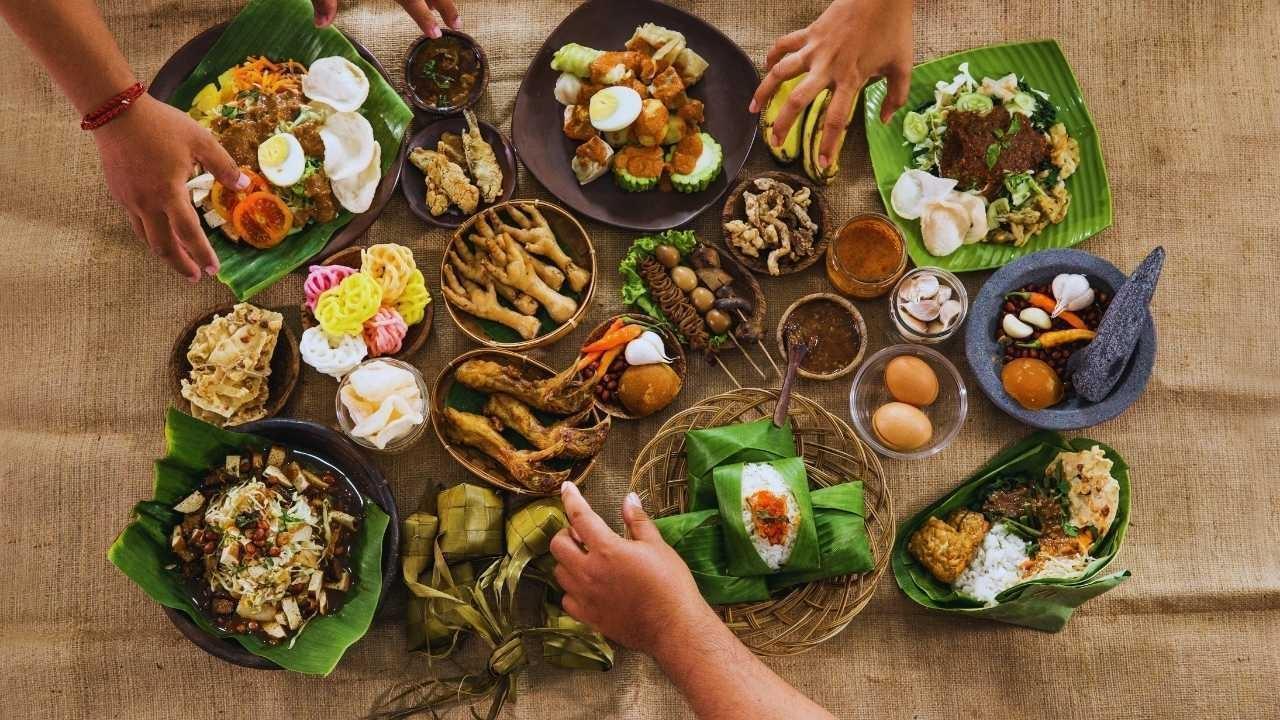You have not yet added any article to your bookmarks!

Join 10k+ people to get notified about new posts, news and tips.
Do not worry we don't spam!

Post by : Anis Farhan
In recent times, culinary travel has emerged as an exciting trend, reflecting a growing appetite for authentic experiences beyond the traditional sightseeing routes. Travelers now look for immersive opportunities that unveil a region's character through its unique flavors. From street vendors to home kitchens and local markets, foodways provide a vibrant insight into cultural histories and everyday life.
Food tours have particularly risen in popularity as a means to navigate this cultural exploration. These excursions blend gastronomy with storytelling, leading participants through local cuisines while exploring the narratives behind each culinary delight. This sensory approach makes culinary tourism an unforgettable, educational experience.
Street food stands as a vital symbol of a region’s heritage, encapsulating centuries of culinary tradition in a single taste. Renowned cities like Bangkok, Istanbul, and Mexico City are celebrated for their dynamic street food offerings. Guided tours whisk travelers through bustling markets and hidden alleyways, introducing them to iconic dishes, whether it's pad Thai, kebabs, or tacos.
These excursions offer more than just flavors; guides provide context regarding the historical, social, and cultural significance of each dish. Take, for example, the evolution of tacos in Mexico City, where indigenous and Spanish culinary influences blend. Street food tours cultivate a deep appreciation for the cultures behind the meals.
Many culinary tours emphasize farm-to-table experiences, establishing a direct link between tourists and the origins of their food. Visiting local vineyards, olive farms, spice plantations, or cheese-making operations allows travelers to engage with production practices firsthand.
These interactions offer insights into local agricultural significance, marrying scenic beauty with practical education. Tours through Tuscany's vineyards or olive groves, for instance, marry stunning landscapes with lessons on sustainable practices and regional customs.
Hands-on cooking classes have become a cornerstone of culinary tourism. Attendees learn traditional culinary techniques from local chefs, preparing iconic dishes imbued with cultural meaning.
Whether it’s rolling pasta in Italy or making dumplings in China, these interactive sessions foster deeper engagement and appreciation for culinary heritage, equipping travelers with skills to recreate the experience at home while forging lasting memories.
The most enthralling food tours weave gastronomy with narrative, where guides share stories about historical contexts, family traditions, and cultural rituals tied to every dish. This storytelling elevates a mere meal into a profound cultural experience.
In Istanbul, for example, a walking food tour may unveil how Ottoman influences shaped contemporary Turkish dishes. Meanwhile, travelers in Kyoto can discover connections between tea rituals and local philosophies. Story-infused tours enrich the travel encounter, fostering emotional ties that deepen understanding.
Modern culinary enthusiasts often place a premium on sustainability and nutrition. Many tours center around organic and ethically-sourced ingredients. Seafood excursions may spotlight sustainable fishing practices, while farm visits highlight regenerative agriculture.
Tour companies also promote conscious consumption, encouraging reduced waste and supporting local economies over global franchises. This focus on sustainability propels culinary tourism to align with responsible travel trends, positively impacting host communities.
Culinary adventures can vastly differ between urban environments and rural landscapes. Cities showcase diversity and innovation, featuring fusion cuisine and bustling markets, while rural areas emphasize traditional methods and seasonal farm-to-table practices.
Adventurous eaters may blend both, balancing street food explorations in vibrant cities with leisurely farm experiences in the countryside. This dual approach provides travelers with a well-rounded perspective of regional culinary traditions, blending modernity with heritage.
Technology is transforming food tours and culinary travels. Mobile applications, virtual learning experiences, and social media platforms connect travelers with hidden gems, enabling easy booking and even virtual cooking classes.
These platforms offer user-generated reviews, curated suggestions, and engaging multimedia interactions, enriching customer experiences. Furthermore, AI-driven recommendations tailor culinary adventures to personal preferences, dietary requirements, and travel habits.
Numerous regions offer exceptional culinary tourism experiences, such as:
Italy: Walking tours in Bologna and Florence highlight pasta-making, cheese tastings, and gelato workshops.
Japan: Tokyo and Osaka showcase street food tours, sushi-making classes, alongside tea ceremonies and sake tastings.
Mexico: Oaxaca and Mexico City feature workshops on mole, mezcal tastings, and market tours with local chefs.
Morocco: Marrakech offers spice market tours, cooking classes, and cultural dining experiences in traditional riads.
These examples illustrate how culinary tourism forges connections between travelers and the cultural heart of each destination.
Food tourism plays a pivotal role in preserving cultural heritages. By generating economic opportunities centered on local cuisine, communities gain incentives to uphold traditional cooking techniques, recipes, and culinary rituals.
Chefs, home cooks, and artisans transmit their craft through tours, workshops, and dining experiences. Tourists gain firsthand insights into these practices, fostering a cycle of cultural preservation that extends beyond the touristy moment.
To maximize the enjoyment of food-centric travels, careful planning can amplify the experience:
Research Regions: Look for areas renowned for their unique culinary styles and traditions.
Select Esteemed Tours: Choose operators with knowledgeable staff and a commitment to ethical practices.
Accommodate Dietary Needs: Make sure the tours are inclusive of allergies and preferences.
Engage Fully: Involve yourself in cooking and tasting rather than just observing.
Share Mindfully: Honor local customs and avoid commodifying cultural practices.
Thoughtful culinary excursions offer genuine experiences that honor flavors and traditions alike.
Culinary travel transcends mere gastronomic enjoyment; it’s about delving into the culture, traditions, and stories encapsulated in each dish. From bustling street food adventures to immersive farm visits and interactive cooking classes, food tours serve as a unique lens into a region’s identity.
As explorers increasingly seek impactful journeys, culinary tourism bridges the realm of adventure with cultural appreciation. By emphasizing authenticity, sustainability, and active engagement, these travels not only tantalize the taste buds but also pay homage to the people and practices that enrich each destination.
This article serves as an informational guide to culinary travel and cultural exploration. Travelers are encouraged to verify local conditions, health regulations, and tour availability prior to planning.










Study Warns Using AI for Medical Advice Is ‘Dangerous’ as Users Get Inaccurate Health Guidance
A major new study reveals that artificial intelligence (AI) chatbots and tools may give misleading o

Top Sci-Fi Movies Streaming on Netflix This February: Must-Watch Picks for Genre Fans
A curated news-style guide to the best science fiction films currently available on Netflix in Febru

BCCI Central Contracts Shake-Up: Kohli, Rohit Moved to Grade B as Board Reshapes 2025–26 List
Virat Kohli and Rohit Sharma have been placed in Grade B in the BCCI’s 2025–26 central contract list

Dalal Street Spotlight: Top 10 Stocks Investors Are Watching as Markets Open on a High
Indian stock markets begin the week with strong momentum, and several blue-chip and mid-cap stocks a

Market Movers Today: Key Stocks Set To Watch In Indian Markets
Indian equity markets are poised for active trading as several major companies, including Bharti Air

Milan Welcomes the World: Inside the Grand Opening Ceremony of the 2026 Winter Olympics
The 2026 Winter Olympics opening ceremony in Milan marked a defining moment for global sport, blendi